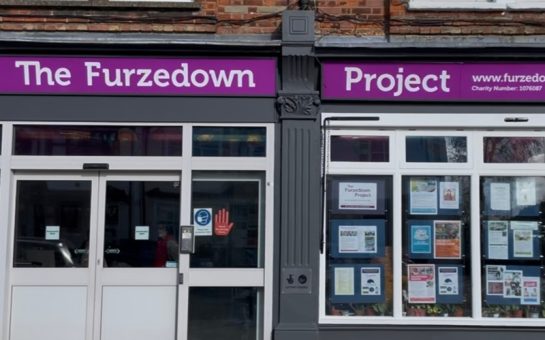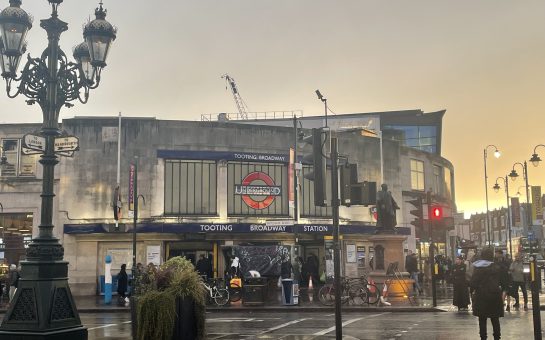By Mimi Swaby
April 16 2020, 10.25
Follow @SW_Londoner
A Wandsworth couple are learning child therapies and Makaton to help homeschool their daughter with special needs.
Alasdair Leslie, 43, and Eveline Leslie, 38 are having to brush up on their Makaton, a form of sign language used for people with language difficulties, and a whole host of child therapies to help teach their seven-year-old daughter who attends the special needs unit at Smallwood Primary School in Wandsworth.
The couple are not just having to homeschool Caroline but also learn all of her therapies and then practice them at home.
Mrs Leslie attended parent Makaton classes when Caroline was at nursery but admits the couple need to brush up on their skills so are now teaching themselves using online resources and books.
She added: “I’m confident we can do it. We’re not going to be fluent in Makaton but at least know a few words.”
Caroline has severe motor and development delay, the left side of her body is weaker and she can not use her left hand.
Before the age of two, Caroline had two brain operations to combat a severe condition of epilepsy. She now has hemiplegia but is seizure-free.
Mr and Mrs Leslie took both daughters, Caroline and three-year-old Ines, who attends Belleville Primary School, out of their schools before they closed as many of Caroline’s classmates have immune system problems – making them particularly vulnerable.
The couple are now juggling homeschooling their daughters while working from home in their 5 bedroom terrace in Wandsworth.
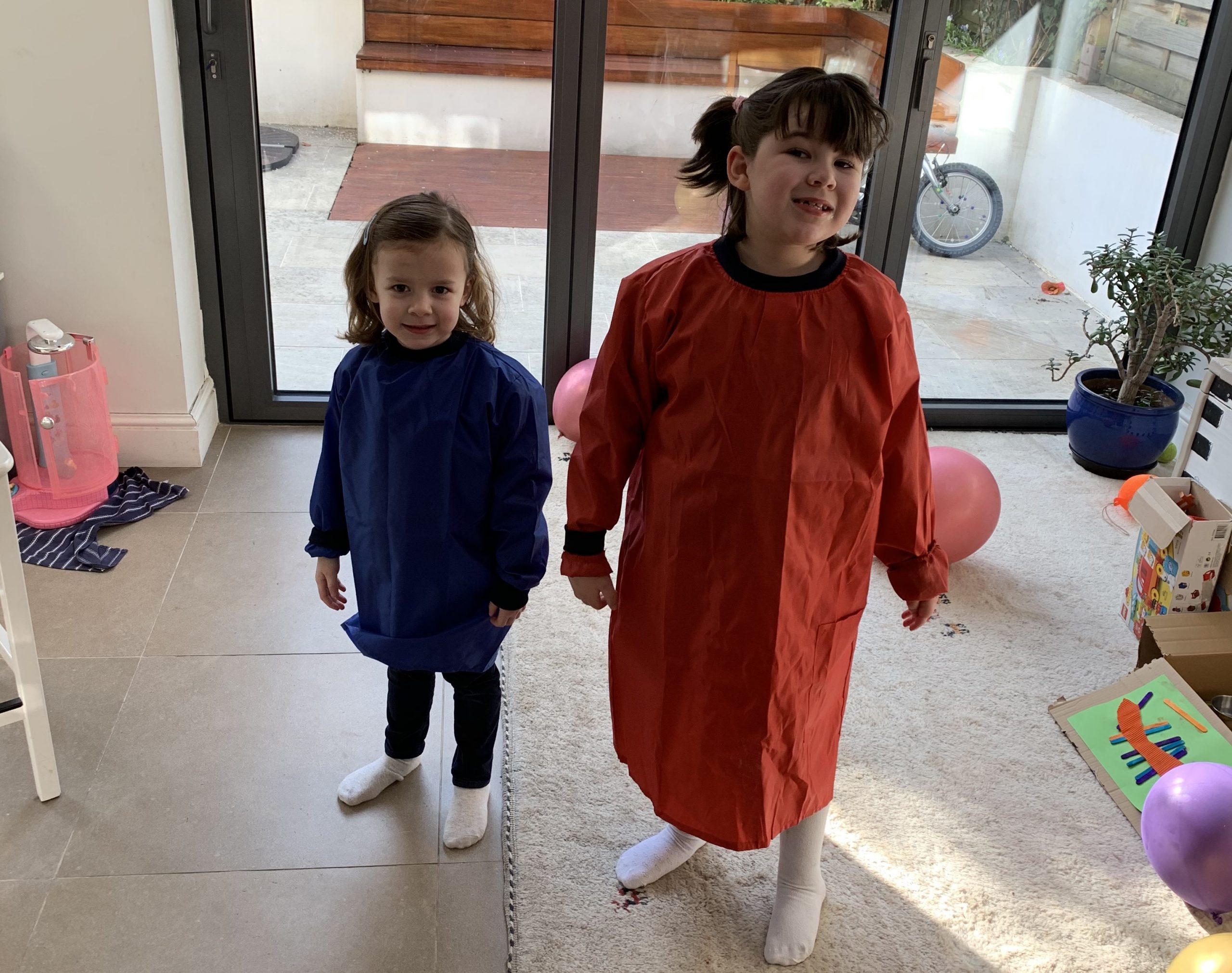
But teaching children with special needs goes far beyond the school timetable.
Caroline’s school provides special material daily but the teachers use Makaton.
Mrs Leslie said: “We already knew a bit of what she’s doing at school, but we have a lot to catch up on, like Makaton.”
Before lockdown Mrs Leslie worked from home but had full time support with special needs expertise, who looked after the girls during the day and communicated with Caroline using Makaton.
Makaton was first developed in the 1970s by Margaret Walker MBE, Kathy Johnston and Tony Cornforth and incorporates symbols and signs into speech, acting as a prompt to help develop language skills.
Commonly used by children with special needs, it aids comprehension as they simultaneously see and hear the words.
But Mr and Mrs Leslie have added many other therapies to their repertoire.
With hospital visits having stopped the couple are now doing all of Caroline’s therapies at home.
Mr and Mrs Leslie are now her physiotherapists to build strength in her left leg; teaching Caroline how to bend her knee correctly to engage and strengthen her thigh.
Her occupational therapists to activate and strengthen her left hand which currently has no sensory input.
Caroline lost half of her visual field from her condition so visuality therapy is another task Mr and Mrs Leslie are undertaking.
They are trying to restore her sight by actively making Caroline look left when she is reading, writing or simply playing around the house.
This is on top of her mobility work which she previously did at school.
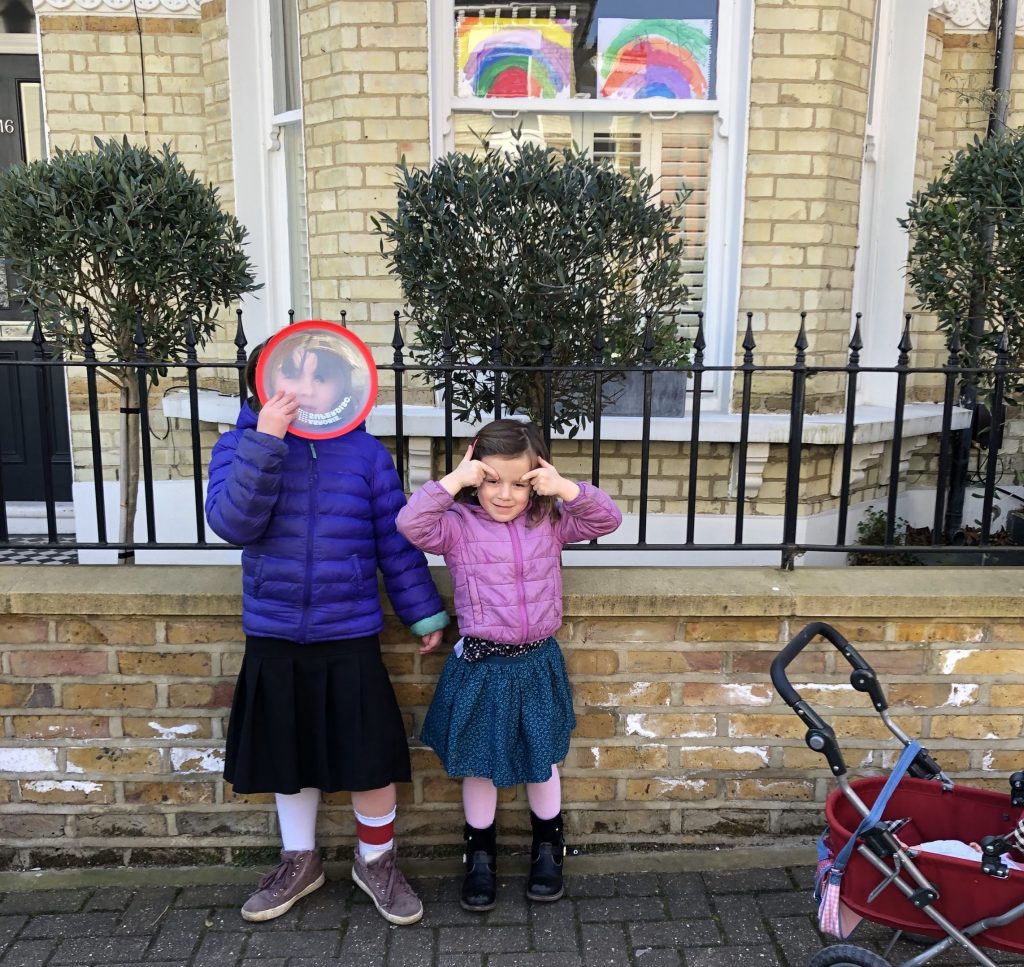
Mrs Leslie added: “I think it’s going to be particularly challenging for parents of special needs children, depending on their condition.
“It is up to the parents to actively reach out and contact all the different therapies to try and keep them going and then control all the different programs. It is a lot.”
Mr Leslie, who works in investment banking, teaches in the morning while Mrs Leslie, who is an investment banker, running a smaller company, takes the afternoon shift.
Both girls are schooled together as there is little learning difference between them.
She said: “Luckily it’s not like other families where it’s very difficult to keep one entertained while we focus on the other, we can do it all together at the kitchen table.”
With late nights and early mornings Mrs Leslie said it is going to be a tiring few weeks just trying to get organised.
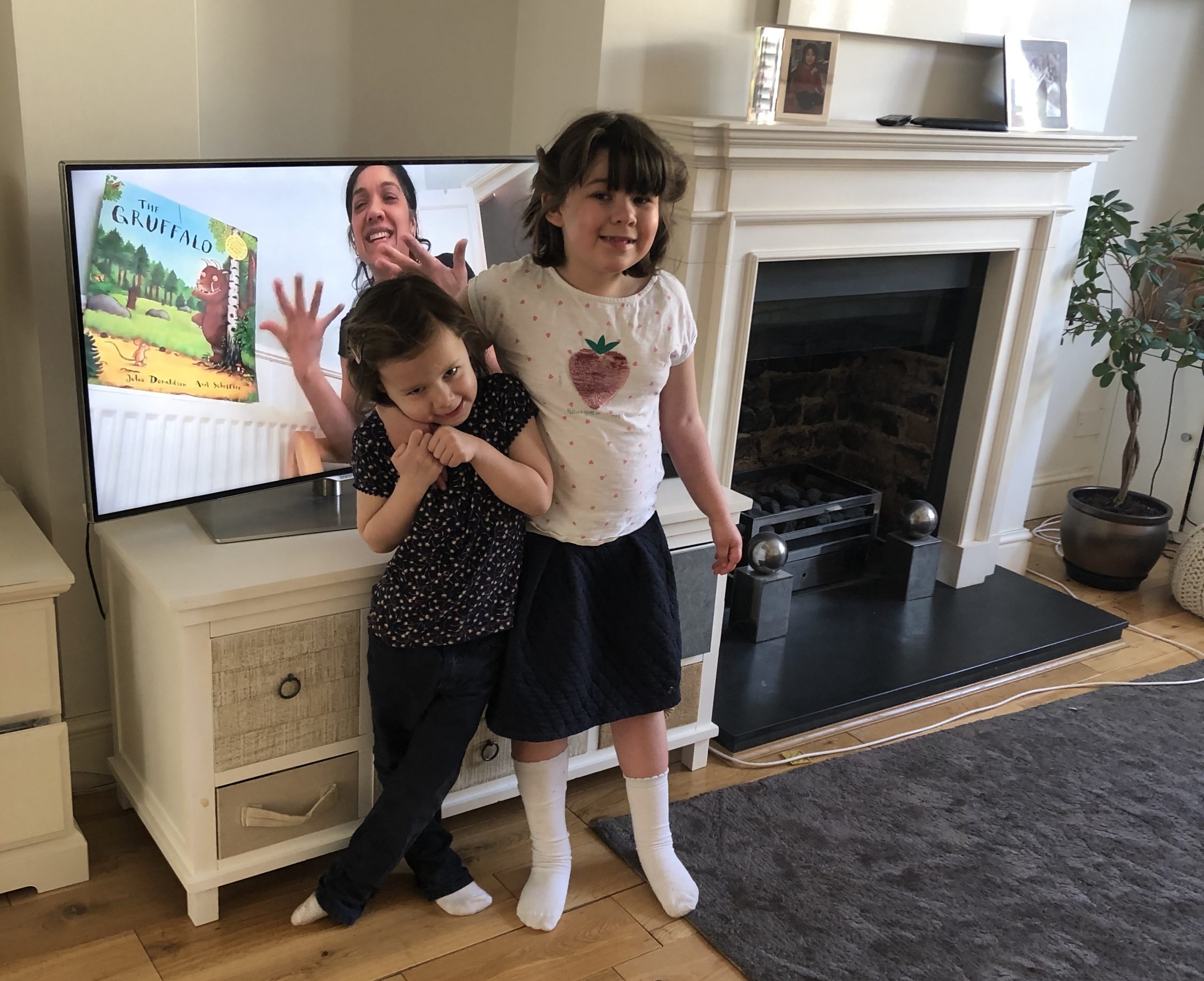
She said: “Clearly it’s a challenge but we just have to change our priorities and that’s schooling for the girls.
“It is different from just helping them with crafting and reading. It has been a big adjustment.”
Mrs Leslie said: “The girls have adapted better than we expected; they are liking all the attention.
“At the moment, they think it’s a holiday. We’ll see after a couple of weeks if they get bored.”
Mr Leslie is among the 750,000 now volunteering for the NHS to help vulnerable people or those self-isolating with shopping, appointments, travel and loneliness.
Mrs Leslie said: “We are very conscious about the dangers and the need to protect others. It’s really just trying to balance between doing the best we can and keep our family safe while also trying to help others.”

